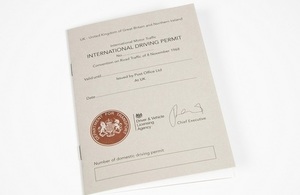News story: UK businesses embrace global demand for British produce
- UK exports grew faster to India (up 19.3%), Japan (7.9%), China (4.6%), and Canada (4.2%), than to the EU (3.6%) in 2018.
- UK exports continue to rise, increasing by 2.7% to 634.1bn in 2018.
- Share of UK exports to the EU over the past 10 years has declined by nearly 5 percentage points to 45.6% in 2018.
Data released today (29th March) by the ONS will give UK exporters a significant boost, as the latest figures confirm demand for UK goods and services is growing across the globe, with exports to India increasing at the fastest rate amongst the UK’s top non-EU trading partners.
Figures released today show the export of goods and services to non-EU trading partners in 2018 reached a high of £345.1bn, demonstrating the growing appetite for British produce outside of the EU.
The latest figures show an increase in the share of exports going to the UK’s top 3 non-EU trading partners, USA, China and Switzerland, increasing from 21.3% in 2000 to 25.4% in 2018. Contrastingly, the share of UK exports to the EU has decreased significantly from 54% to 45.6% over the same period.
Eurostat data also shows the UK was one of only two EU member states to export more goods to non-EU countries than within the EU in 2018, demonstrating the UK’s increasing popularity in markets beyond the union.
Secretary of State for International Trade, Dr Liam Fox, said:
Even with an increasingly challenging global economic outlook, these latest figures show demand for UK exports across the globe continues to grow and there is clear appetite for British products all around the world. Now more than ever is the time for UK businesses to be exploring opportunities overseas.
My international economic department is focused on growing exports and boosting the UK economy through our Export Strategy, and putting the UK at the heart of the world’s fastest growing markets through an independent trade policy.
The USA remains the UK’s top destination for exports, increasing by 3.9% to 118.2bn in 2018.
Latest data also highlights the attractiveness of the UK as a destination for foreign investment as inwards stock has increased by 12.6% to a record high of £1,336.5bn in 2017. The USA is the UK’s top investor, with investment stock increasing by 19.5% to 351bn.
There has been a growing demand from Asian investors in the UK, with inwards investment stock increasing by 201% since 2008, the highest growth rate of any continent. Furthermore, the share of inwards stock from Asia has increased from 6.8% to 9.6% between 2008 and 2017.
Notes to Editor
- Partner country data comes from ONS UK Economic Accounts 2018 Q4
- Eurostat data comes from Intra-EU Trade in Goods – Recent Trends
- Foreign direct investment data comes from ONS Foreign Direct Investment Involving UK Companies: 2017
- Top 3 non-EU trading partners in 2018 were the USA, China and Switzerland
